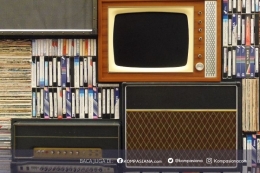A current study by BBDO, our morning ritual consists of brushing teeth, taking shower, having something to eat, talking to family members, shaving (for males) and having make up (for woman). Most of this is not part of our daily lifestyle just a hundred year ago. We take a bath once in a week. And we don’t differentiate soap and shampoo. Guess who is responsible for making this become a lifestyle–our way of living? Consumer brand of course!
For GAP, creating a new lifestyle has made the brand become an icon. A new tradition in many American corporations is changing the way we dress for work. The dress code will vary for every company, but ‘Casual Friday’ is becoming a popular trend. In general, employees will dress up in ‘business’ attire on Monday through Thursday. Then they are allowed to dress down on Fridays. Many people say that this casual trend allows employees to feel more relaxed and be more productive. It is sweeping through America and becoming very popular.
Not only brand that is able to create such an influence. Ali Sadikin – the legendary Jakarta major is the key figure to make Friday to become Batik day. By doing that, an industry is born overnight. Before that, practically there’s no dress code that represents Indonesia.
Similar case study happened in food industry. Rather than selling instant coffee to a country dedicated to tea, Nestlé created desserts for children infused with the flavor of coffee but without the caffeine. The younger generation embraced these desserts. Their first imprint of coffee was a very positive one, one they would carry throughout their lives. Through this, Nestlé gained a meaningful foothold in the Japanese market.
Hoka-hoka Bento and Pizza Hut in Indonesia introduce Japan and American food culture to the local scene. The food has been localized to suit the local taste. It influences the Indonesian generation to make them as part of their food vocabulary. And later opens up the door for more exotic Japan and American food respectively.
Dendy Darman, co-founder and owner of Bandung’s best-known independent clothing label, Unkl347 (or just 347 for short) is one of hundreds of independent clothing labels popping up all over urban Indonesia that use international commercial culture as the visual vernacular in their designs. Kickfest, the celebration of this new urban culture that attracts hundred thousands of visitors, has cemented indie clothing from a mere trend to mainstream market, that culminates in the new form of urban lifestyle.
We can trace a lifestyle today was a trend yesterday. So, can lifestyle be designed or it’s just happened by accident? Previous study shown that it can be created. This is when design thinking plays its role. It starts with a problem, then turns this insight to become an empathic solution for consumers. Instead of relying on analytical solution, design thinking offers more, it gives an emotional touch on the solution.
Indonesia currently was swept away by Facebook. 30 millions Facebook accounts to date. Why people use it? Some use it just for fun, some use it for friendship and networking, but some use it for business. They tag their friends and use it for selling clothes, accessories, electronics and many others. Suddenly the empowerment of small business born through their fingertips. As we know, Indonesia needs entrepreneurs. A lot of them!
Is this just a trend or is it a potential to change the way we do the transaction? Is this trend happened only in all connected society? And how to turn this trend to become a lifestlye? If this lifestyle enabling entrepreneurs to sell products and services, is this really build their economy? And can this be a sustainable and scalable? If so, what is the key factor to make this ecommerce lifestyle to really become economic empowerment? What kind of ecosystem need to exist to support this lifestyle?
This is still an open ended question, that I want to find out. How to turn a simple trend to become an economic powerhouse.
Baca konten-konten menarik Kompasiana langsung dari smartphone kamu. Follow channel WhatsApp Kompasiana sekarang di sini: https://whatsapp.com/channel/0029VaYjYaL4Spk7WflFYJ2H







